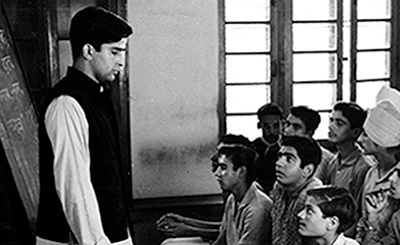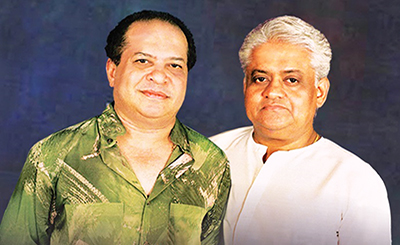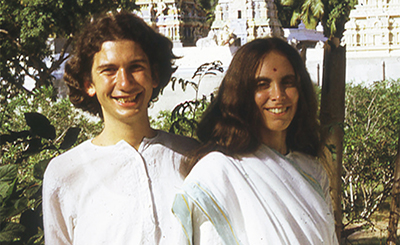
The cynical grumbles of the unmarried and the proudly unattached over the pervasive corporate or commercial nature of Valentine’s Day — the sappy and witless films, the teary novels, the tacky postcard sentiment and overall teddy bear squishiness of feeling that douses the atmosphere of the weeks leading up to Cupid’s calling — is a fact easily granted, even by those untroubled couples who jollily partake of the unofficial international day of maudlin love. Yet it might be suggested in turn, with a raise of brow if not of tone, that if the embittered grouch would only step out of his self-mandated quarantine of singleness and emerge from troglodytic bachelorhood, he might find something sweet, if not significant, in all this smoochy abandon. “Life and its moments,” (the doves might coo), “are so much more meaningful when shared with” — the hated collocation is anticipated — a significant other.” To which the loner of volition might reply by stringing up a four-letter Valentine’s gift and telling them, like their pink teddy bear with the hearts on it, to get stuffed.
I do, however, see the validity of the family man’s point, of the avenues that open up when you circumscribe yourself to an address, of the expansion of experience when you limit yourself to a person, of the world that is revealed when you dedicate yourself heartily to a special part of it. And there is, of course, the tacit historical and tribal obligation of continuity of the name of one’s forebears.
But when I witness men my age jogging the pavement behind a perambulator or, (heaven strike out the image), strapped like a hesitant martyr to a papoose; when I hear them uxoriously having to “double-check with the wifey” before commitment to the simplest and most innocent plan; as I observe, not his nine-to-five, but his five-to-nine: I cannot but sympathize with his opposite who, remarking the shortness of life, the celerity of time, and the vastness of the world’s experiences, determines not to limit himself any more than circumstances direct. Eheu Fugaces Labuntur anni! There is security in signing the official, life-prolonged job; but there is a priceless flexibility and freedom in freelance. I enlist on the side of the unregenerate bachelor.
I am confirmed in this feeling whenever I sit for catch-up with monogamous comrades. Where as once we spoke of politics, art, beer, and, naturally, the wonders and mysteries of women kind, now the conversation seems ever to swerve back, with a bird’s migratory instinct, to the particulars of his domestic nest. The restaurant at which he now dines has a fixed menu (where life was once given him à la carte), and whether we, or rather he, is discussing his wife, his kids, or his boss, things going on at home or happenings at the office seem to make up the unrelieved courses of his domestic fare; what rounds the hearth or the desk are the orbits of his chosen universe. I would rather discuss sports — and sports is something I’d be quite content rather never to discuss. The only thing more maddening than unbidden stories of other peoples’ children is unbidden stories of other peoples’ children attended by unbidden photos of said children. I have often been obliged to ignore many an old young pal in order to dam this photographic deluge.
Other habits are equally predictable in Newlywed Man. Instantaneous upon getting married, it becomes his wont to importune their as of yet unhitched coevalsto follow their higher example into paradisiacal matrimony. They are bestirred by a missionary brio, and subsequently set out on a campaign of conversion, for the good of Mankind (though he has by now likely adopted the more democratic substitute, humankind). When it is suggested to him that one shouldn’t brusquer les choses, especially as regards a decision so vital and lasting, he insists upon the importance of “getting a move on”--adding with dramatic ominousness, “before it’s too late”. Thereupon he draws up frightful descriptions of resentful old men, lonely, pathetic, and friendless, liable to die alone in shabby disgrace.
Whether his urging comes of genuine enthusiasm to share with his fellows in a good thing, or to compensate for are pressed, undefined feeling of regret, is never really clear. To say it another way, we can ask whether by his conjugal crusade he is attempting to convince others, or himself. It is, anyhow, utterly plausible that subliminal questions of ‘what if’ arise vaguely in the married man’s mind whenever he encounters his freewheeling and libertine counterpart.
After decades of familial and societal pressure to ‘settle down’ and ‘make a life’, he now quite surreally finds himself having done so. He has achieved that goal — or to keep with the phraseology, “milestone” — said to be of the most important in man’s advent to adulthood. The relief he feels at this unburdening, of having ‘got done with it’, is not unattended by a clammy inkling of uncertainty. He was under the impression of having dismissed all dance partners to the privileged exception of one, but now he feels to have forfeited the fête altogether. He cannot without incurring ignominy escape his island back into his former world, but — mischievous chuckle — he can bring as much of the world to populate his island. Thus, as a survival tactic, he seeks to enlist the remaining members of the tribal fraternity to which he earlier belonged to his newfound happy dominion. He will, at any rate, feel a certain security in the knowledge that, if he made a mistake, well, so has everyone else. He must spare no one.
He will, of course, promptly affirm the ennobling advantages of wedlock, pronounce swooningly upon the health and happiness of the new fam, and asseverate with confidence his domestic contentment. But the firmness with which he affirms, pronounces, and asseverates can seem a trifle insistent to believe him without question.
As such, when he sits for a beer (permission naturally being granted by “the misses”) with his mate, for whom no permission needs granting, he views his former ally as through a reverse mirror. When such friends come around to question me about my own social and occupational affairs, they conduct the interrogation with an interest and concern almost fetishistic. As a single writer, I am in more than one way a freelancer. They exult to hear of what they can experience no longer, and seem to expect from you all manner of reckless gaiety. They demand debauched tales of epicurean abandonment, of lawless dissolution and the most extravagant cavorting; only so, having mortified their fantasy vicariously through you, they can proceed to chastise you for experiencing it first-hand.
Perhaps I’m not temperamentally suited to domestication (but don’t all Bertie Woosters say that). The manicured lawn and white picket fence have always sounded to me uncannily like the description of a sheepcote. The offer of comfort has always submitted to the possibility of adventure (or misadventure — adventure’s louche and dashing cousin); routine has always bent before anarchic winds, in whose strider is carried the message: Romance!
How be it. I may well come to regret not having heeded with more seriousness, or rather less facetiousness, my friends’ exasperating “life advice to couple and beget. And it may be that, as encroaching winter falls upon the spring time of youth, I will look back, with summery nostalgia, upon seasons gone by too breezily, and wish during such yeasty moments I had someone towards whom to turn and remark, “remember that time…?”
For now, I believe I shall spend time best by creating ample clay for memory’s shaping, rather than worry about the time when I can only look back regrettably over its chipped and verdigris sculpture.
More from The Byword
Comments
*Comments will be moderated











